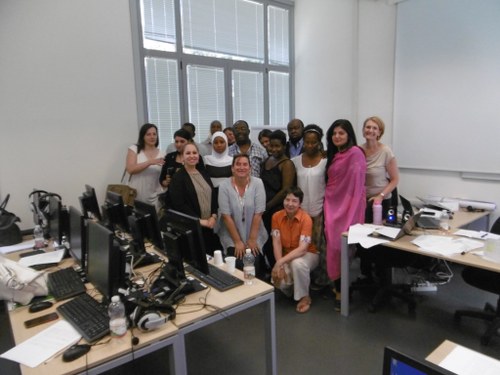RESEARCH PROJECT

"The work of interpreters in the 21st century is characterized by the need to adapt to a multiplicity of contexts and working methods. One of these contexts is humanitarian: in areas of conflict, in areas affected by disasters or in refugee camps, for example, interpreters have to face specific requests and realities. How do interpreters respond? How are they prepared to face them? What are the initiatives to help them and protect them?"
- Marc Orlando, First Symposium on Interpreter Training and Humanitarian Interpreting, Monash University, Melbourne, Australia 1 and 2 April 2016.
Migrants and refugees arriving on the Italian shores with dramatic life experiences are at the centre of an important humanitarian emergency that our country is facing today. In order to understand needs and instances in this delicate context, humanitarian interpreting is today a particularly requested instrument, able to overcome profound linguistic and cultural differences that often exist between migrants and those who receive them.
The first basic course in humanitarian interpreting in Italy comes from the collaboration between the Department of Interpretation and Translation of the University of Bologna - Campus of Forlì and the Faculté de Traduction et d'Interprétation of the University of Geneva.
Since there are no training courses for interpreters able to meet the communication needs of operators and asylum seekers, this first initiative aims to provide fundamental skills of consecutive interpretation and professional ethics. Moreover, it is designed to improve understanding and production skills in Italian, with special attention to colloquial and specialist registers.
The course, which enjoys the patronage of the Municipality of Forlì, is designed in particular for the interpreters of the Territorial Commission for the Recognition of the International Protection of Bologna - Forlì-Cesena Section (based at the Prefecture of Forlì), and is organized by the Department of Interpretation and Translation of the Alma Mater Studiorum Università di Bologna. Thanks to the support of the University of Bologna and the University of Geneva, the course is free. It takes place in blended learning mode, with a first seminar in the classroom (which was held on June 30th and July 1st at the Department of Interpretation and Translation of Forlì), followed by an online individual training program realized through the virtual platform available from the Faculté de Traduction et d'Interprétation in Geneva. At the end of the course, those who have successfully passed all the planned training activities will receive a certificate of attendance from the two universities that collaborate in the initiative.
There are 12 students - nine women and three men - taking part in the first edition of the course. They arrive from Ivory Coast, Ghana, Guinea, Nigeria, Pakistan, Senegal, Tunisia and Ukraine.
(in Italian)